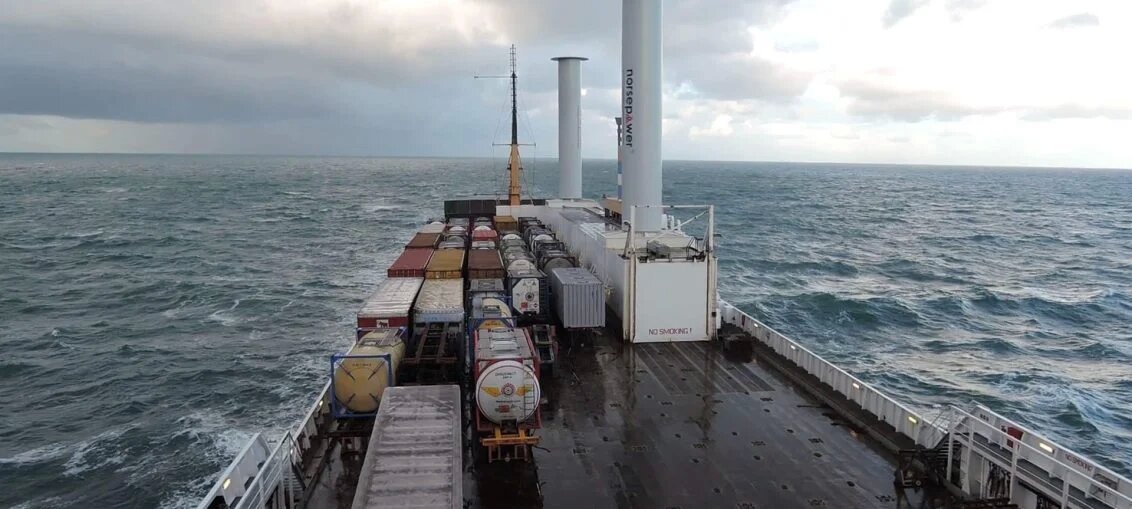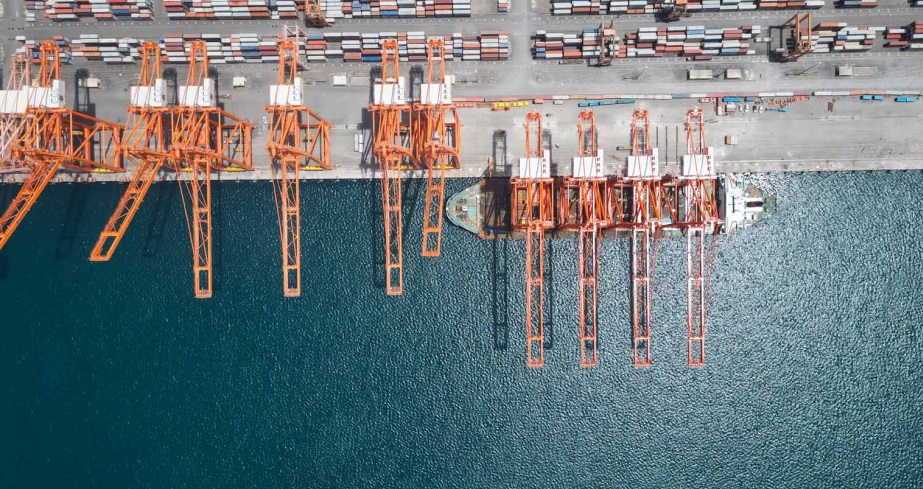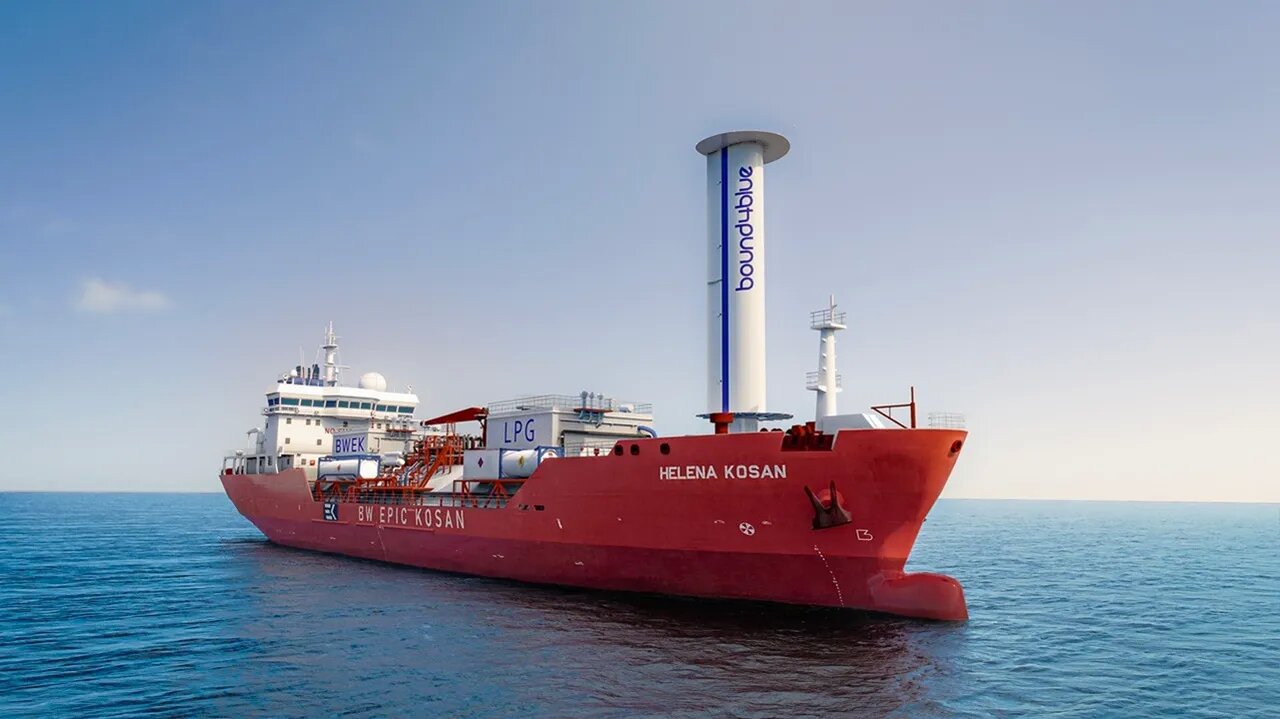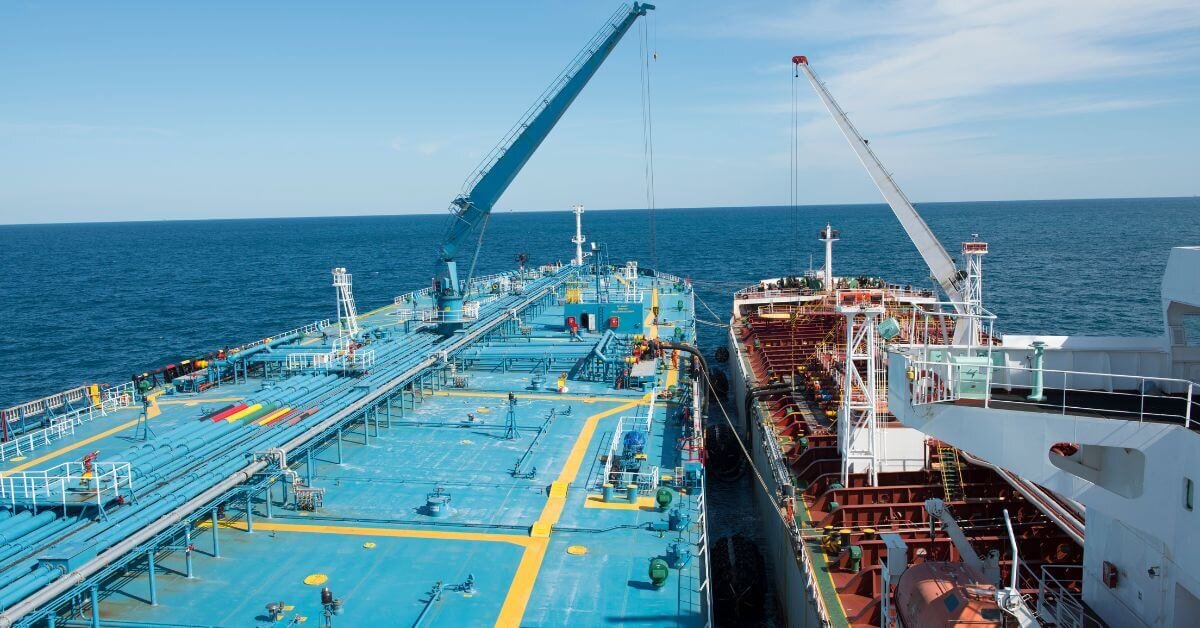United Kingdom | September 17, 2025 – Shell Marine has recently completed its first LNG bunkering operation at Portland Port, marking a significant milestone in the company’s expanding global LNG infrastructure and reaffirming its commitment to accelerating maritime decarbonization through strategic port partnerships.
The operation involved the Frida Knutsen, a state-of-the-art dual-fuel LNG shuttle tanker, which received LNG via a seamless and secure ship-to-ship transfer. This marks Shell’s first LNG delivery at Portland Port, further expanding its bunkering footprint in Northern Europe.
Located strategically on the UK’s southern coast, Portland Port is fast emerging as a viable node in the regional LNG supply chain. The recent bunkering operation, made possible through close collaboration between Shell Marine, Eni Trade & Biofuels S.p.a., Enilive S.p.a., and the Port of Portland Authority, reflects a growing appetite for cleaner fuels across UK and European waters.
The Frida Knutsen is among several dual-fuel shuttle tankers Shell has supported since their introduction over three years ago. Previously, this fleet was primarily bunkered in Rotterdam and Skaw. The addition of Portland enhances Shell’s geographic flexibility and operational resilience.
“We’re proud to now include Portland in our growing bunkering network,” said Dexter Belmar, Vice President, Global Downstream LNG at Shell. “This achievement highlights our ability to deliver flexible, scalable solutions for LNG-powered vessels and strengthens our shared commitment to decarbonizing the shipping sector.”
This successful operation brings Shell Marine’s global LNG bunkering network to 28 active locations across 13 countries, a testament to the company’s firm investment in future-ready fueling solutions. The strategic addition of Portland not only serves the Knutsen fleet but also opens the door for future bunkering operations in the English Channel—a key corridor for international maritime trade.
Shell’s expanding presence in LNG bunkering is driven by the shipping sector’s urgent need to comply with tightening emissions regulations from the IMO, EU Fit for 55, and UK Maritime 2050 strategies. By enabling the use of LNG—a fuel that offers up to 20% greenhouse gas reduction compared to traditional marine fuels and near-zero SOx and particulate matter emissions—Shell continues to support shipping companies as they transition to cleaner operations.
The Portland bunkering operation underscores the critical importance of multi-stakeholder collaboration in advancing clean energy logistics. Shell expressed deep appreciation to its partners for their role in the success:
“A heartfelt thank you to Eni Trade & Biofuels, Enilive, and the Port of Portland for their cooperation in making this operation a success,” shared Belmar. “Here’s to continued progress and new ports of call.”
This milestone not only enhances operational options for Shell’s LNG-fueled fleet but also positions Portland Port as a future-facing maritime hub ready to accommodate the next generation of low-emission vessels.
Shell Marine is at the forefront of the global maritime energy transition, offering comprehensive refueling, lubricant, and digital service solutions to help shipping companies improve performance while reducing their environmental footprint.
Its LNG bunkering network spans critical global trade routes and supports a wide range of vessel types, from cruise liners and container ships to tankers and ferries.
With a focus on safety, innovation, and collaboration, Shell Marine continues to enable its customers to meet today’s compliance requirements and tomorrow’s net-zero ambitions through scalable, sustainable marine fuel options—including LNG, bio-LNG, and synthetic LNG.
As global demand for low-emission marine fuels accelerates, Shell Marine’s milestone operation at Portland Port represents not just another new location on the map—but a strategic leap forward in building a cleaner, more resilient maritime future.




